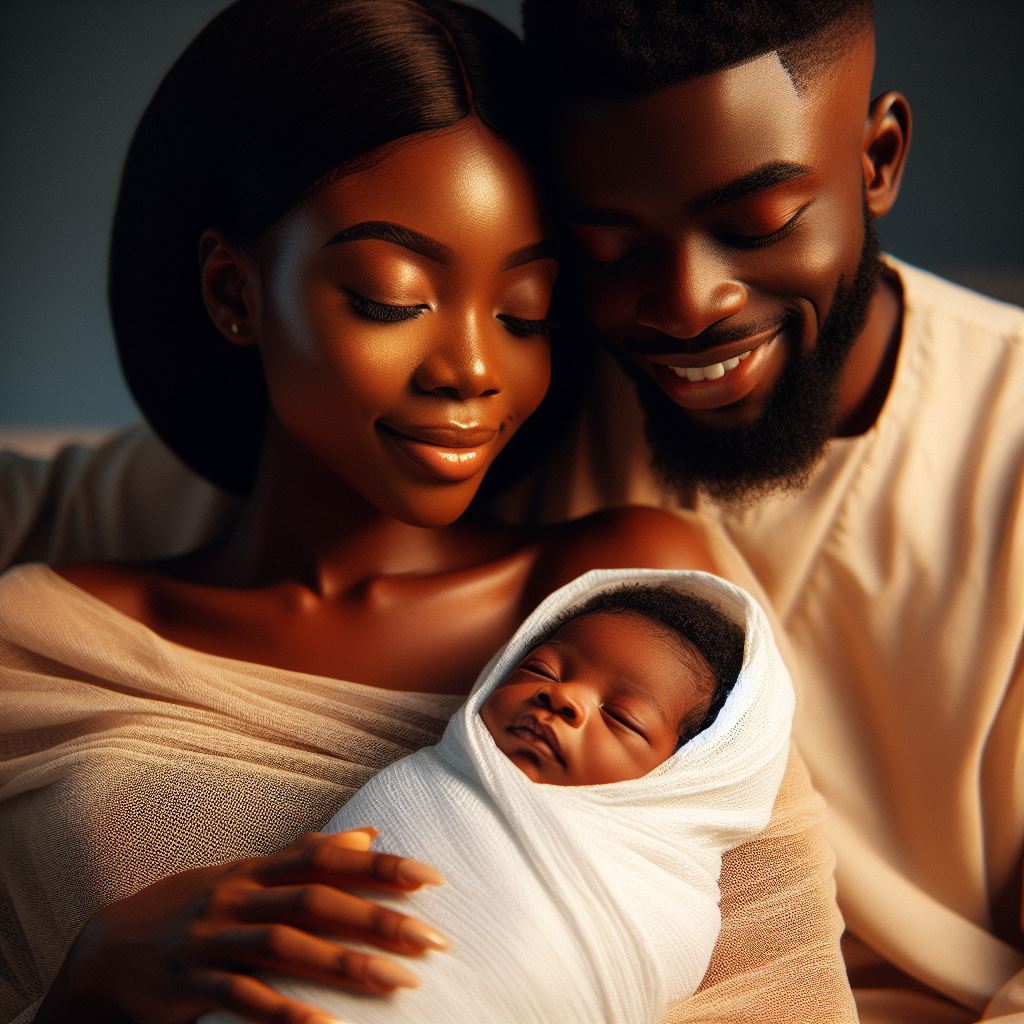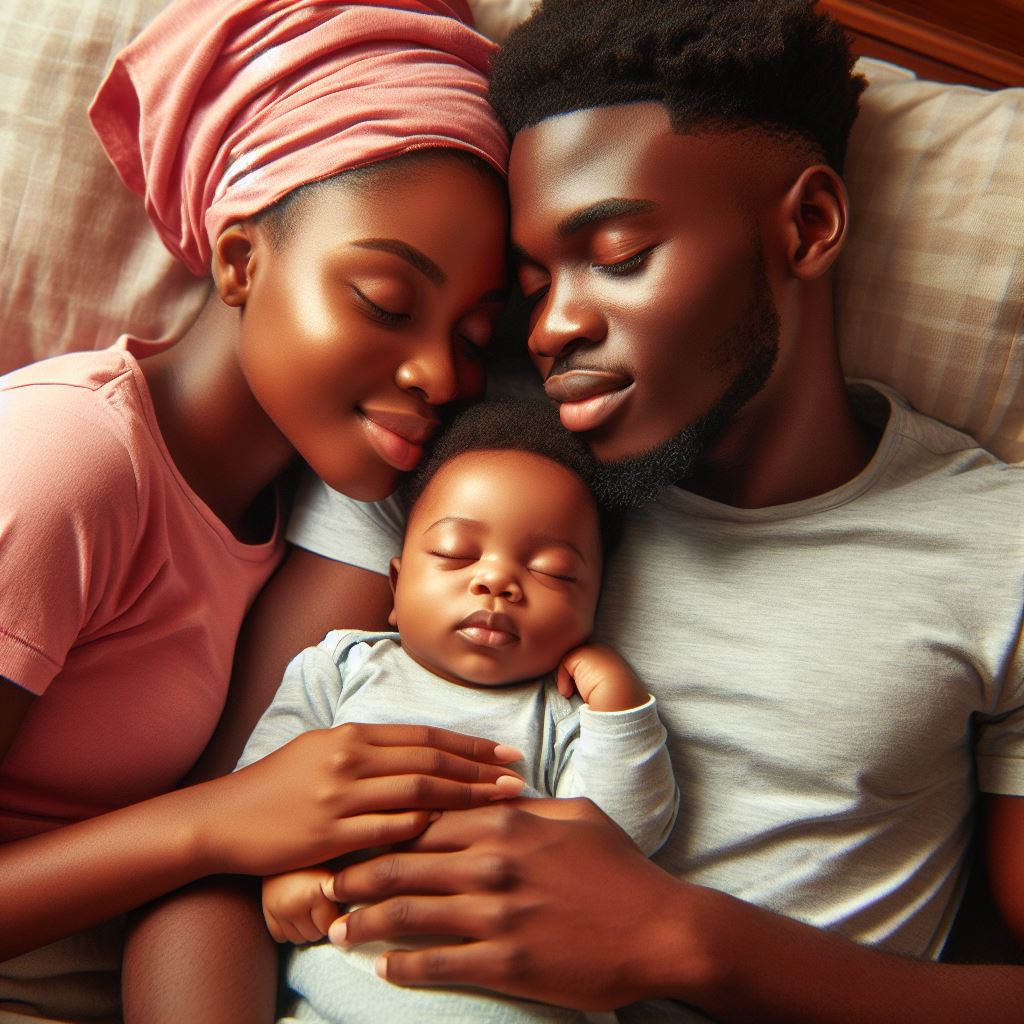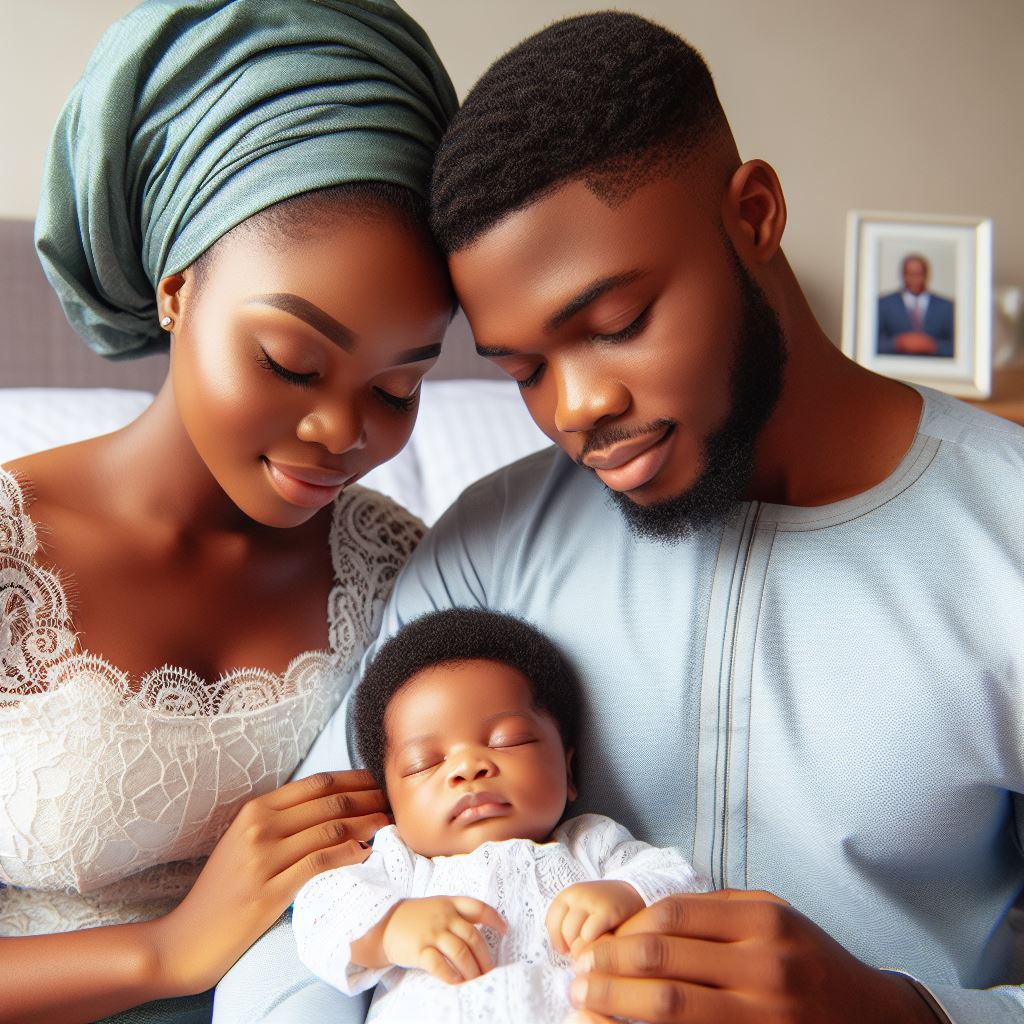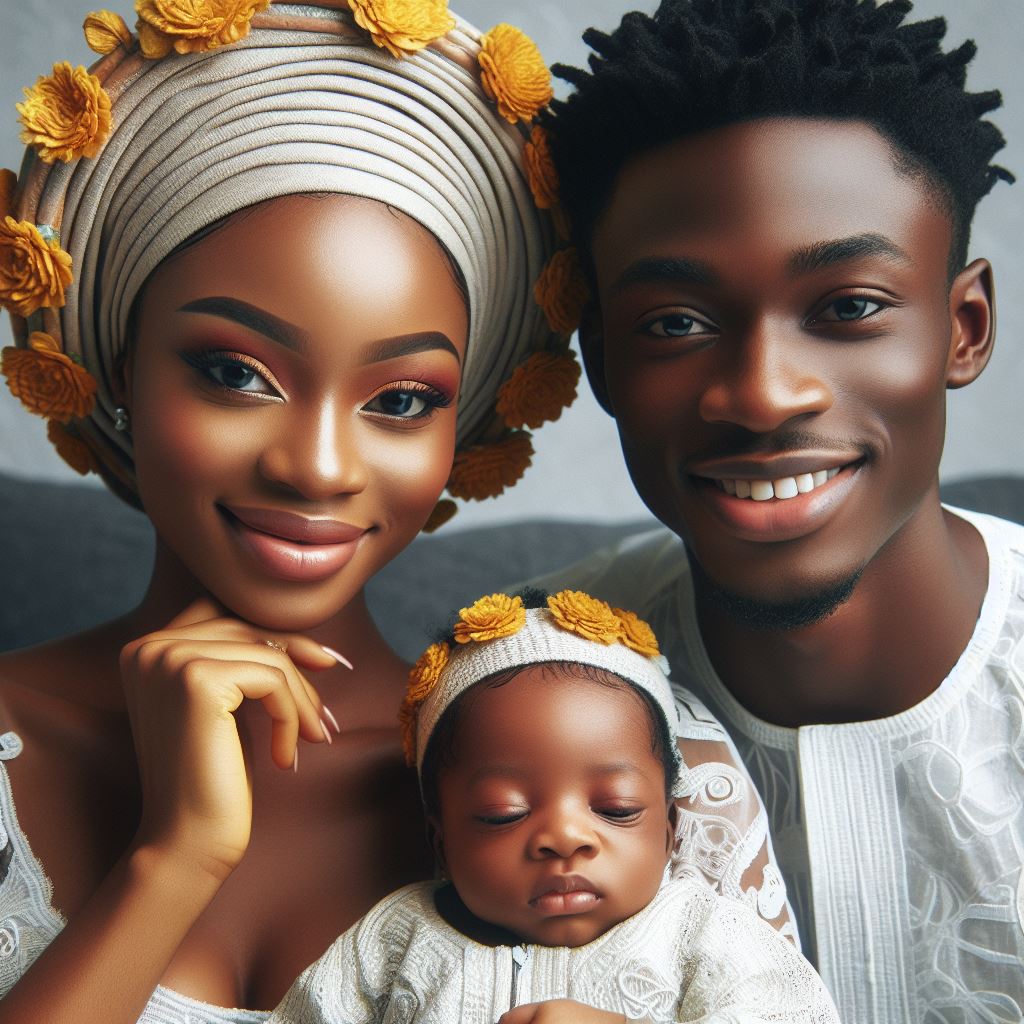Introduction
When it comes to dressing babies, choosing safe clothing is of utmost importance.
In Nigeria, the climate plays a crucial role in determining the right clothing choices for infants.
Nigeria’s climate is characterized by high temperatures and humidity levels.
This poses challenges when selecting appropriate clothing for babies as their delicate skin is more susceptible to heat rash and other skin irritations.
Hot weather conditions require lightweight and breathable fabrics to keep babies cool and comfortable.
Natural fibers such as cotton and bamboo are excellent choices as they are gentle on the skin and allow air circulation.
Furthermore, it is crucial to consider the sun’s harsh rays in Nigeria.
Opting for clothing with built-in sun protection, such as UPF-rated fabrics or hats, can shield babies from harmful UV radiation.
Additionally, Nigeria experiences rainy seasons with increased humidity levels.
During this time, it is important to choose quick-drying fabrics to prevent babies from getting cold and uncomfortable.
The choice of clothing also depends on the baby’s age and the level of activity.
Babies who are just starting to crawl or walk may require clothing that allows freedom of movement and is not restrictive.
In essence, selecting safe baby clothing choices in Nigeria’s climate is vital to ensure babies’ comfort and well-being.
Understanding the impact of Nigeria’s climate enables parents to make informed decisions, considering factors such as temperature, humidity, sun exposure, and the baby’s age and activity level.
By choosing appropriate fabrics and taking necessary precautions, parents can protect their little ones from discomfort and potential skin issues.
Parenting Made Just for You
Get personalized Parenting Solutions tailored to your child’s needs. Transform your parenting journey with expert guidance in 1-3 days.
Get StartedConsiderations when choosing baby clothing in Nigeria
Climate factors
When it comes to choosing baby clothing in Nigeria, several considerations should be kept in mind.
The country’s climate plays a significant role in determining the most suitable clothing options for babies.
Nigeria experiences high temperatures throughout the year. Therefore, it is essential to choose clothing that can help babies remain cool and comfortable.
Opting for lightweight fabrics such as cotton can be a great choice as they allow for better airflow and ventilation.
Additionally, humidity levels in Nigeria can be quite high, leading to increased perspiration.
It is crucial to select clothing with moisture-wicking properties to keep babies dry and prevent skin irritations.
Fabrics like bamboo and microfiber are known for their excellent moisture management capabilities.
Furthermore, Nigeria experiences periods of heavy rainfall and wet weather.
Choosing water-resistant or quick-drying fabrics can help protect babies from getting wet and ensure their comfort.
It is also advisable to have a few waterproof outer layers, such as raincoats or ponchos, to keep babies dry during rainy seasons.
Baby’s comfort and safety
Apart from climate factors, it is equally important to prioritize the comfort and safety of the baby when selecting clothes.
The fabric choices should be soft, gentle, and hypoallergenic to prevent any skin irritations or allergies.
Natural fabrics like organic cotton or bamboo are highly recommended for their breathability and non-irritating properties.
Breathability is crucial in Nigeria’s climate as it allows air circulation, preventing overheating and rashes.
Unveil the Perfect Name that Tells Your Family's Story
Let us help you find a name that embodies your family's values, traditions, and dreams. Our personalized consultation weaves cultural insights to create a name that's uniquely yours.
Get StartedMoisture-wicking properties also help in keeping the baby’s skin dry and comfortable.
Fabrics with open weaves or knit constructions, such as muslin, are excellent choices for ensuring breathability.
Moreover, the proper fit of baby clothing is vital for their comfort and safety.
Clothes should be neither too tight nor too loose to avoid restrictions on movement or potential entanglement hazards.
Opting for clothing with a bit of stretch and flexibility allows babies to move freely and engage in activities comfortably.
In fact, choosing baby clothing in Nigeria requires careful consideration of climate factors, such as high temperatures, humidity, and rainfall.
Additionally, prioritizing the baby’s comfort and safety involves selecting fabric choices with breathability, moisture-wicking properties, and non-irritating materials.
Ensuring the proper fit and flexibility of the clothes adds to the overall comfort and well-being of the baby.
By keeping these considerations in mind, parents can make safe and suitable clothing choices for their little ones in Nigeria’s climate.
Read: Monitor Safety: Keeping Nigerian Babies Secure
Recommended baby clothing options for Nigeria’s climate
In Nigeria’s warm climate, it’s crucial to dress your baby in appropriate clothing options to ensure their comfort and safety.
Choosing the right fabrics, styles, and accessories is essential to prevent overheating, rashes, and discomfort.
Lightweight and breathable fabrics
When it comes to fabrics, opt for lightweight and breathable materials such as cotton, linen, bamboo, or organic fabrics.
Cotton is especially popular due to its softness and ability to allow air circulation.
Linen is another excellent choice as it helps regulate body temperature and absorbs moisture, keeping your baby dry.
Bamboo fabric is also worth considering as it is lightweight, hypoallergenic, and has natural moisture-wicking properties that help keep your baby cool and dry.
Additionally, choosing organic fabrics ensures that no harmful chemicals or pesticides come into contact with your baby’s skin.
Loose-fitting and comfortable styles
In terms of style, prioritize loose-fitting and comfortable clothing.
Rompers and onesies are perfect for hot weather as they provide a loose fit and allow for easy movement.
Dresses and skirts, especially for girls, are not only adorable but also allow airflow to keep your baby cool.
When selecting pants and shorts, opt for loose-fitting options made from breathable fabrics.
This will prevent any restriction of movement and allow air to circulate, preventing overheating.
Appropriate accessories
Accessorizing your baby’s outfit is also important. Sun hats with wide brims are essential to protect your baby’s delicate skin from harmful UV rays.
Lightweight socks made from breathable materials will prevent sweaty feet and discomfort. Look for shoes that are also breathable to keep your baby’s feet cool.
For newborns, swaddle blankets made from lightweight and breathable fabrics are recommended.
These blankets provide a cozy and safe environment for your baby while allowing airflow to prevent overheating.
In short, choosing the right baby clothing in Nigeria’s climate is crucial for your baby’s comfort and well-being.
Opt for lightweight and breathable fabrics such as cotton, linen, bamboo, or organic materials.
Ensure that the clothing is loose-fitting and comfortable, and accessorize with sun hats, lightweight socks, breathable shoes, and swaddle blankets.
By considering these recommendations, you can ensure that your baby stays comfortable, cool, and protected in Nigeria’s climate.
Read: First Aid Basics for Babies: Nigerian Parent Tips

Guidelines for safe dressing in Nigeria’s climate
When it comes to dressing your baby in Nigeria’s climate, it is important to consider various factors to ensure their safety and comfort
With the hot and tropical weather, choosing the right clothing can make a big difference in how your baby feels throughout the day.
Dressing in layers
One important guideline for safe dressing in Nigeria’s climate is to dress your baby in layers.
This allows you to adapt to the changing temperatures throughout the day. By wearing multiple layers, you can easily add or remove clothing as needed.
This is particularly important during periods of temperature fluctuation, such as transitioning from an air-conditioned space to the outdoors.
By dressing your baby in layers, you can ensure they are neither too hot nor too cold.
Protecting from excessive sun exposure
Another key aspect of safe dressing in Nigeria’s climate is protecting your baby from excessive sun exposure.
The strong African sun can be harmful to your baby’s delicate skin. To protect them from harmful UV rays, it is essential to use sunscreen with a high SPF.
Apply it generously to any exposed areas of skin, such as the face, neck, and arms. Additionally, consider choosing clothing with UPF (Ultraviolet Protection Factor).
These garments are specifically designed to offer added protection against the sun’s rays.
Considering cultural and societal norms
In Nigeria, it is important to consider cultural and societal norms when dressing your baby.
Modesty requirements vary among different communities, and it is important to respect and adhere to these norms.
Select clothing that covers your baby’s body appropriately and ensure they are comfortable and able to move freely.
For special occasions, you should also follow dress code guidelines. In Nigeria, certain events may have specific dress requirements.
Ensure that your baby is dressed in accordance with these guidelines to show respect and honor the occasion.
In general, dressing your baby safely in Nigeria’s climate requires consideration of several factors.
By dressing in layers, you can adapt to changing temperatures and prevent overheating.
Protecting your baby from excessive sun exposure is crucial, so remember to use sunscreen and choose clothing with UPF.
Lastly, it is important to consider cultural and societal norms, respecting modesty requirements and following dress codes for special occasions.
By following these guidelines, you can ensure your baby is safe, comfortable, and appropriately dressed in Nigeria’s climate.
Read: Car Safety for Babies: Nigerian Parent’s Guide
Care and maintenance tips for baby clothing in Nigeria
When it comes to caring for your baby’s clothing in Nigeria’s climate, proper maintenance is crucial.
Here are some essential tips to ensure your little one’s clothes stay safe, clean, and comfortable.
Washing recommendations
- Use mild detergent: When washing your baby’s clothes, opt for a mild detergent that is free from strong chemicals and fragrances.
This will help prevent any skin irritation or allergies that may arise from harsh cleaning agents. - Avoid harsh chemicals or additives: It’s best to steer clear of using any harsh chemicals, bleach, or fabric softeners when washing your baby’s clothing.
These substances can be harmful to their delicate skin, causing rashes or other skin irritations. - Gentle machine or hand washing: While it may be tempting to throw all the baby clothes into the washing machine, it’s essential to select the gentle or delicate cycle to prevent any damage to the fabric.
Alternatively, you can wash them by hand using a mild detergent and lukewarm water for extra care.
Proper storage
- Avoid moisture and mold: Nigeria’s climate can be humid, making it necessary to store baby clothes in a dry and well-ventilated area.
Avoid storing them in damp spaces or areas prone to moisture, as this can lead to mold growth and damage the clothes. - Keep clothes clean and folded: To maintain the quality of your baby’s clothing, make sure to keep them clean and folded when not in use.
This helps prevent wrinkles and keeps them ready for wear at any time.
By following these care and maintenance tips, you can ensure that your baby’s clothing remains safe, comfortable, and durable in Nigeria’s climate.
Remember to choose mild detergents, avoid harsh chemicals, and use gentle washing methods.
Additionally, proper storage practices are crucial for preventing moisture and keeping clothes clean.
Taking these precautions will help keep your baby happy and healthy while wearing their clothes.
Read: Avoiding Common Baby Hazards in Nigerian Homes
Conclusion
Selecting safe and appropriate clothing for babies in Nigeria’s climate is of utmost importance.
Parents should prioritize their baby’s comfort and safety when making clothing choices.
By considering factors such as fabric, breathability, and weather conditions, parents can ensure the well-being of their babies.
Maintaining a healthy and happy baby in Nigeria requires paying attention to their clothing needs, as it directly affects their comfort and safety.
So, let us all make informed choices and create a safe and comforting environment for our little ones.




